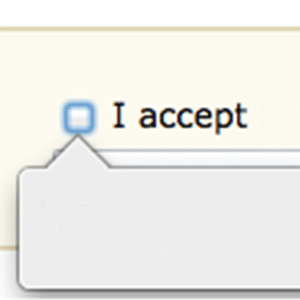Being cyber aware is a hard trait to acquire, especially when we have other online qualities and habits deeply ingrained in our system. These habits have become a norm, and almost every individual ignores the threats they pose. Here is a list of things that you might be doing every day which are a threat to your online security.

L'avantage de nos appareils est qu'ils nous rappellent lorsque des mises à jour sont déployées ou disponibles. Comme les failles et les vulnérabilités sont détectées régulièrement, la disponibilité des mises à jour l'est également. Ainsi, vous recevrez une tonne de notifications concernant une mise à jour particulière, à tel point que vous penserez que c'est ennuyeux. Que faire ensuite ? Vous mettez les notifications en sourdine. Cette habitude signifie que vous manquerez des mises à jour et des correctifs importants et que votre système ou vos applications seront en danger si la vulnérabilité qu'ils contiennent est exploitée.
Laisser son appareil sans surveillance
This applies to computers and smartphones; most people are victims of this habit. For example, you have been working all day, and you decide its time to take a quick break or even get some fresh air. Since it’s a short break, you forget to lock your computer as you do not want to enter your long password again. But it takes a moment for a malicious person to load malware into your device and begin to wreak havoc. Before leaving your device behind, make sure it’s locked.

Almost every service, account or programs that are on the internet have a section of Terms of service. For instance, when signing up for let’s say a social media account, there’s a checkbox/button below these words, “by continuing, means you have read and understood our terms of service.” Usually, there’s a link in the words, ‘terms of service’ that when clicked, will open the terms of service page. But since you might be eager, and in a hurry to use the service, all you end up doing is agreeing to what you don’t know. You risk your online data since some of the services have stated in their terms that they have a right to retain your data, track you and even may allow third parties to access it. Other services collect your device fingerprints, and other can delete your account without prior notice.
Utilisation des identifiants des médias sociaux pour s'inscrire sur d'autres sites
When presented with; register using your email or with Facebook/Google, you are likely to choose with Facebook/Google or another available social media site. This is understandable because using social media logins is convenient, faster and you don’t have to remember passwords. But there are two major problems with this type of login.
First, if your social media account gets hacked, the hackers will have access to all the other linked accounts. Second, the other accounts also have partial access to your personally identifiable information which you would like to keep private elsewhere.
Affichage négligent/accidentel
Vous avez probablement déjà entendu cette phrase : "l'internet n'oublie jamais". C'est en effet vrai, car ce que vous publiez sur l'internet reste sur l'internet même après que vous l'ayez supprimé. Il se peut qu'il n'apparaisse pas sur le site où vous l'avez posté, mais il sera disponible sur d'autres caches Internet. Voici un exemple simple : les mèmes. Vous postez une photo en train de faire quelque chose d'amusant mais qui n'est pas approprié, un créateur de mèmes la voit et la diffuse dans le monde entier. Cela signifie que la supprimer d'un seul site ne servira à rien. Par conséquent, si vous ne voulez pas que vos informations se retrouvent sur le web, ne pensez même pas à les publier.
Not using a VPN
The P in VPN stands for Private; a VPN will not only keep your information secure, but it will also keep your identity hidden when you are online. This minimizes a lot of internet threats from malicious people that are after your data.


